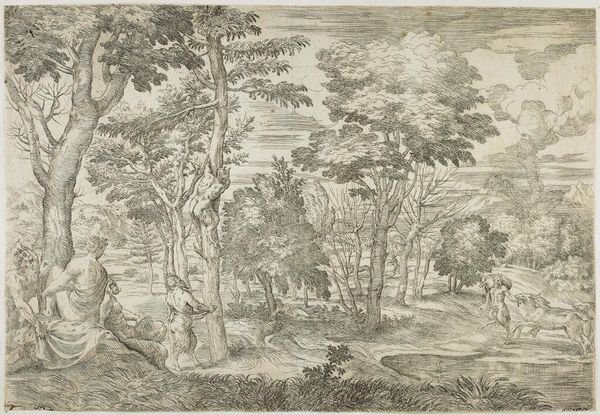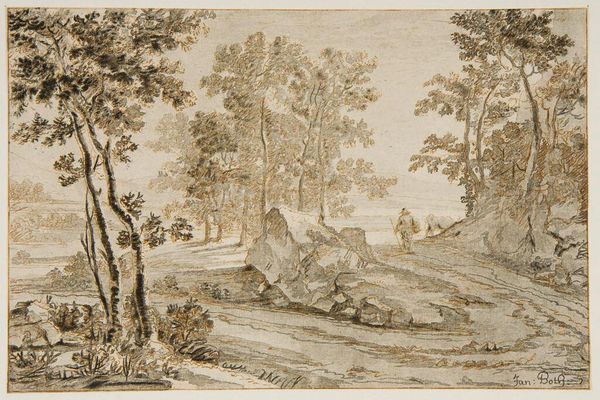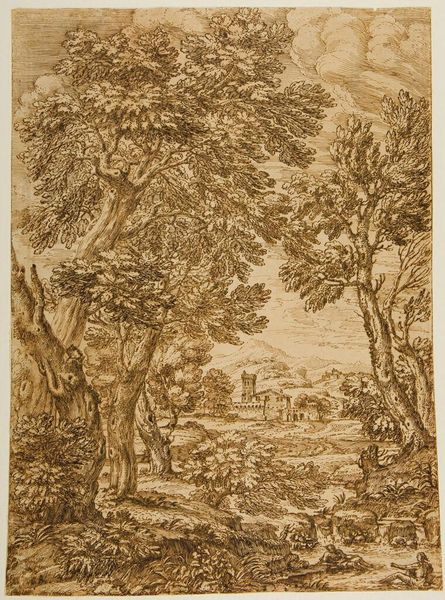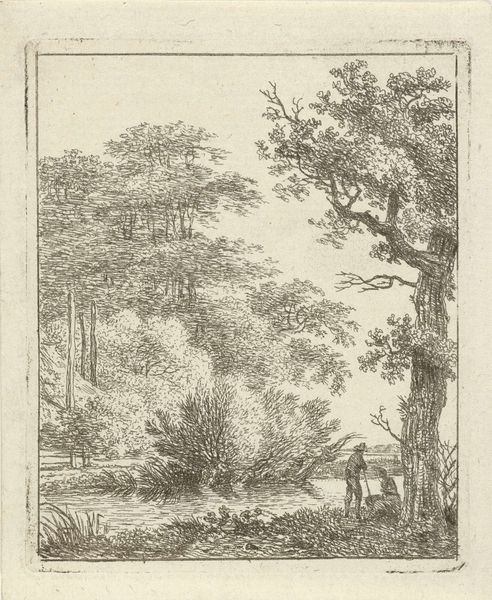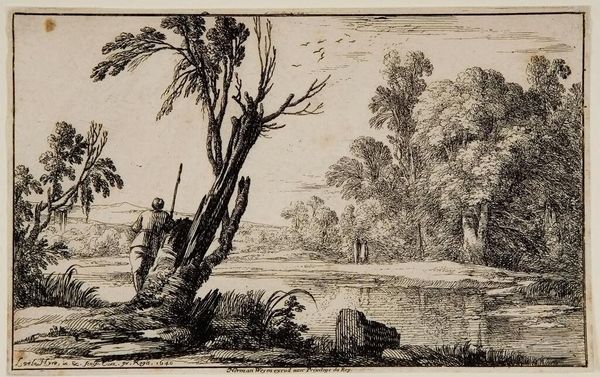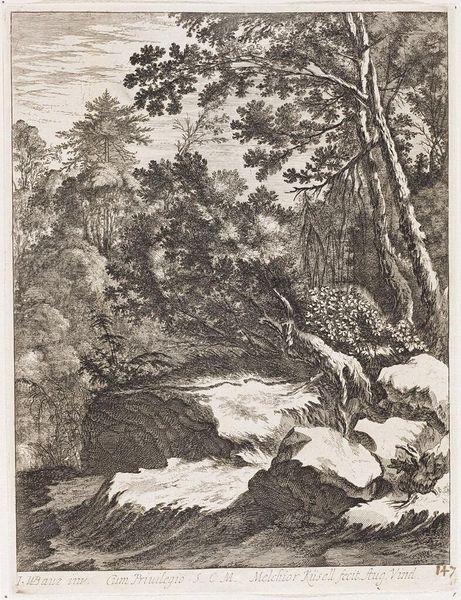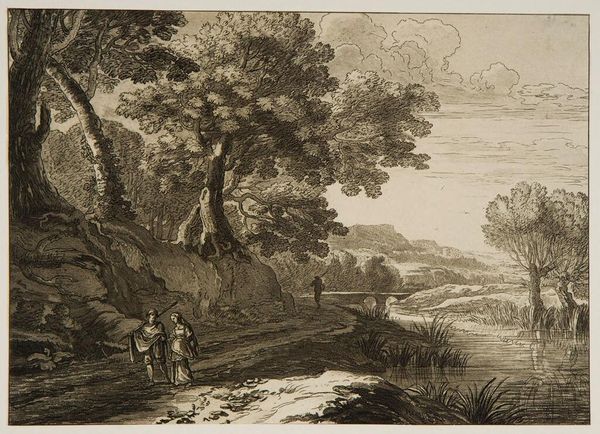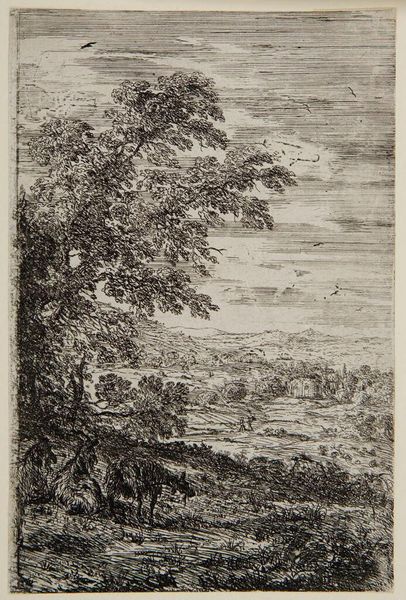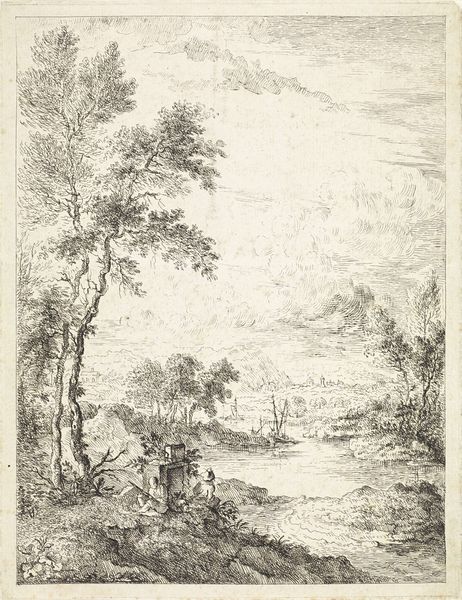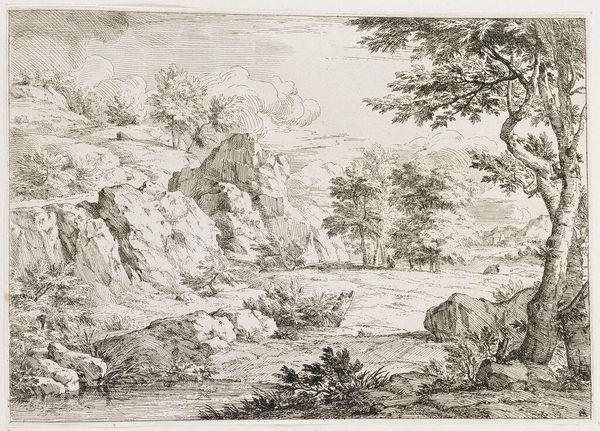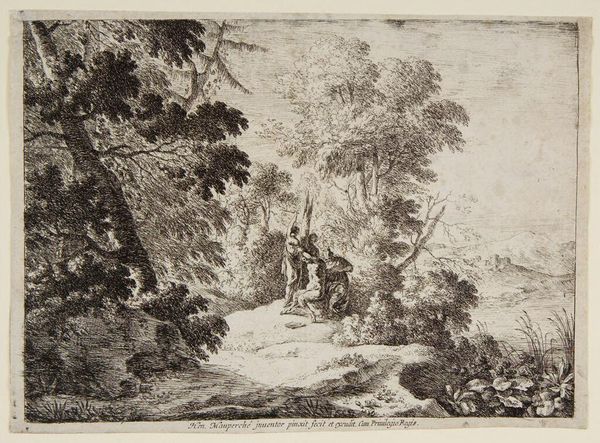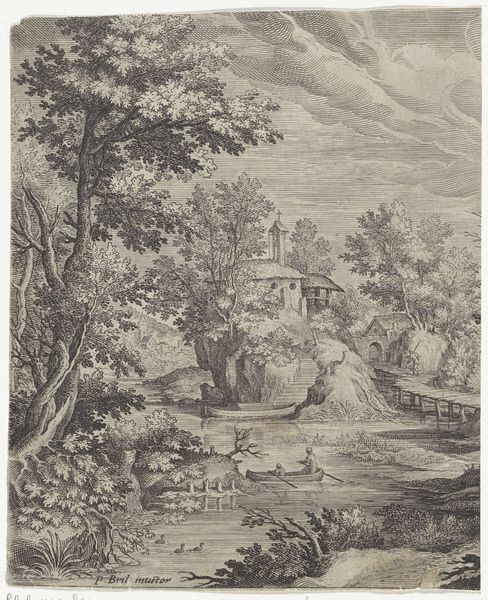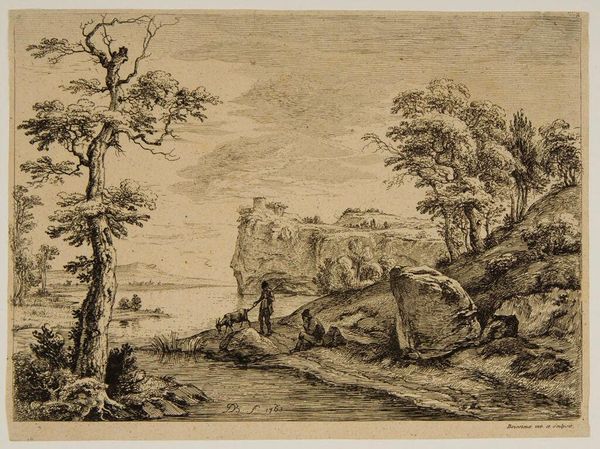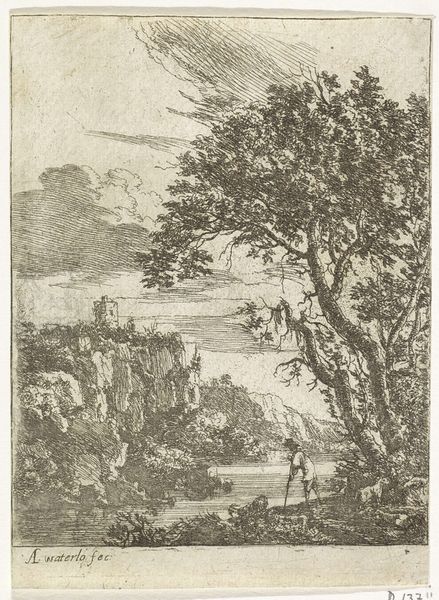
River Landscape with Two Figures in Foreground, Castle in Distance n.d.
0:00
0:00
drawing, print, paper, ink, chalk
#
drawing
#
baroque
# print
#
landscape
#
figuration
#
paper
#
ink
#
chalk
#
line
Dimensions: 339 × 274 mm
Copyright: Public Domain
Editor: We're looking at "River Landscape with Two Figures in Foreground, Castle in Distance," an undated drawing by Abraham Genoels II. The composition and use of line gives it a serene but almost unsettling feeling. What do you see in this piece? Curator: This landscape presents an idealized view of nature, common in Baroque art, but let's think critically about what this "ideal" represents. Who is allowed to access and enjoy this seemingly untouched space? Consider the power structures at play in constructing these idyllic visions, particularly in relation to land ownership and the displacement of marginalized communities. What narratives are intentionally excluded from this landscape? Editor: That’s a powerful point. I was initially focused on the aesthetics, but the drawing does seem to gloss over the realities of rural life, almost like a carefully curated stage set. It seems deliberately removed from real labor, and real lives, doesn't it? Curator: Exactly! How does this relate to the castle in the distance? That symbol represents the power and privilege that this carefully constructed image protects. Genoels isn't just showing us a pretty scene, but a social order, an ideology of privilege made picturesque. Who benefits from this carefully maintained appearance? Editor: So, looking closer, I see the composition as actively obscuring the underlying social dynamics, using beauty to legitimize potentially exploitative relationships to the land and labor. Curator: Precisely! It prompts us to interrogate the romanticization of nature, understanding that such portrayals often mask deeper, often unjust, power dynamics. The “untouched” wilderness often conceals a history of dispossession and exclusion. Editor: I'll definitely be looking at landscapes differently now! Curator: And hopefully thinking about whose stories are missing, and why.
Comments
No comments
Be the first to comment and join the conversation on the ultimate creative platform.
